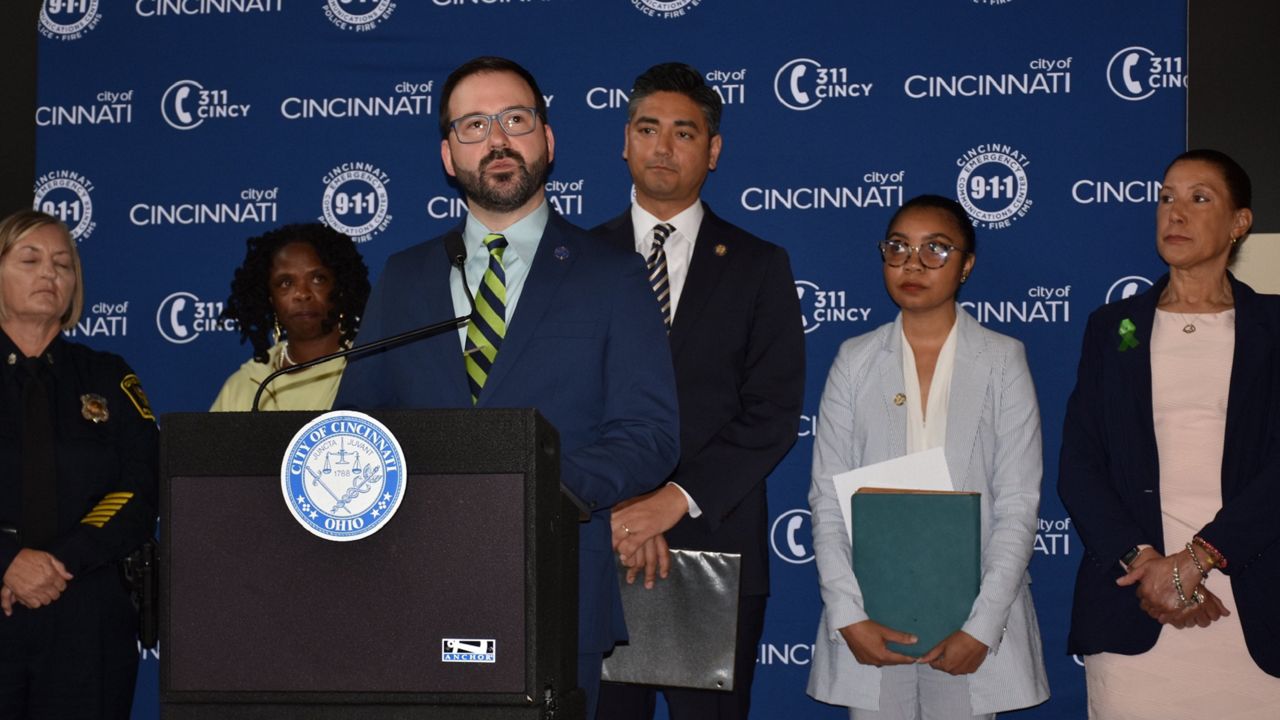CINCINNATI — The City of Cincinnati will launch a six-month pilot program that will send unarmed mental health and medical personnel to emergency calls for nonviolent and mental health crises.
What You Need To Know
- A new pilot program will send unarmed health and mental health personnel to nonviolent and mental health crises
- The six-month pilot will send a paramedic and behavioral health clinician to low-risk calls for things like depression, homelessness and substance abuse
- The goal is to provide "more appropriate" responses to mental health calls and free up limited police resources
- Data collected will go toward determining necessary changes to the program or opportunities to expand
Mayor Aftab Pureval and city leaders announced the plan Thursday morning at the Cincinnati Regional Operations Center in Lower Price Hill. The ROC, as the facility is commonly called, houses the city’s Emergency Communications Center (ECC), which receives both 911 and non-emergency calls, and also dispatches police and fire runs.
The plan calls for the creation of what Pureval called an “Alternative Response to Crisis Team” (ARC) that will be part of the 911 system’s response to behavioral health calls and other community services.
The ARC pilot will create a new response team made up of a licensed behavioral health clinician from the Cincinnati Health Department and a Cincinnati Fire Department paramedic. They’ll respond to low-risk 911 calls that don’t require a police response, things like mental health, depression, homelessness and substance abuse.
Clinical de-escalation, medical assessment and crisis intervention will be core parts of their work. If needed, the team will also provide transportation, connections to community resources and basic needs, such as food and clothing.
The pilot begins in July. The ARC Team will work 40 hours per week to start, but the plan is to expand to 60 hours over the course of the program. They'll be flexible with the schedule and try out different time windows to see what works best.
Pureval referred to the pilot as an “innovative step forward” in the city’s commitment to a comprehensive public safety response.
“With this program, we are pushing past the status quo to make sure that those in need of urgent help get the kind of help they need, and that our police officers’ time and resources are spent keeping Cincinnatians safe from violence,” he said.
The city’s 911 call-takers most commonly direct calls to the Cincinnati Police Department, the Cincinnati Fire Department and the city’s parking enforcement team. When a 911 call doesn’t fit into one of those areas, the “police are the default response to calls,” according to Bill Vedra, director of the ECC.
On Tuesday, the group stressed their shared belief that those in crisis would receive more appropriate help from trained mental health professionals rather than police officers.
The program is similar to those implemented in several other cities across the country. One of those is Dayton, Ohio, which in November launched a program that sends unarmed mediators to non-emergency calls.
“This is what problem solving looks like,” said Iris Roley, a longtime community activist and the city’s City Collaborative Agreement consultant. “This requires deep-rooted conversations in response to the community… it addresses the community’s request to review best practices and calls for service, and make this [ECC] the best in the country.”
The ARC team will wear street clothes and arrive in a van, not a police or medical vehicle. That’s important, Vedra said, because sometimes the presence of a uniformed police officer can escalate simply because of a person’s feelings toward the police or experiences with the criminal justice system.
“Despite good intentions on the part of 911 to get help to someone, sometimes the wrong type of help can cause a situation to escalate unnecessarily,” he said. “This will be an enormous step in the right direction with a new resource that will help 911 and help callers in crisis.”
The ARC Team will remain in “constant contact” with police dispatchers during the response in case they determine they need a police officer to respond. That would include something like an unexpected threat of violence or a weapon, Theetge said.
CPD already partners with the University of Cincinnati’s Mobile Crisis Response Team to co-respond to serious and high-risk mental health crisis calls.
Interim Police Chief Teresa Theetge called the program “exciting. She voiced her support for the program because it will make crisis response more effective while also freeing up officers’ time to focus on situations on police work.
Beyond the response team, the ECC will partner with Talbert House to make their staff available to take low-risk mental health calls. Talbert House provides a variety of services, including operating phone lines for things like mental health and substance addiction.
Pureval emphasized Thursday that this is just a pilot program. The goal for the initial six months is to provide enough time to collect worthwhile data.
Throughout the pilot, the city uses data to evaluate the pilot — see if it's working, make necessary adjustments and determine if there’s potential to expand the program.
The pilot will cost about $178,000, with $20,000 of that being covered by a grant the city received.



